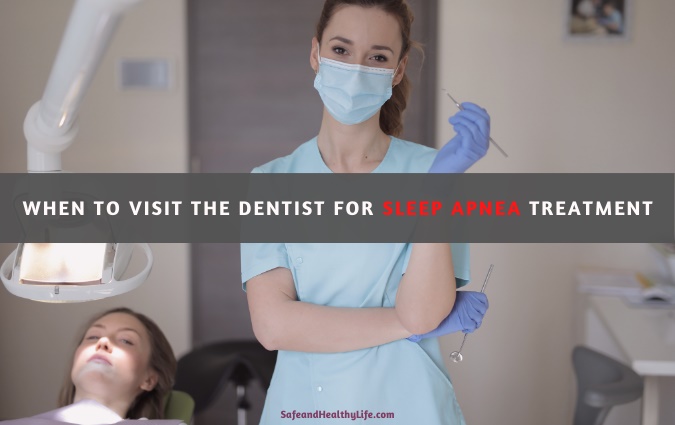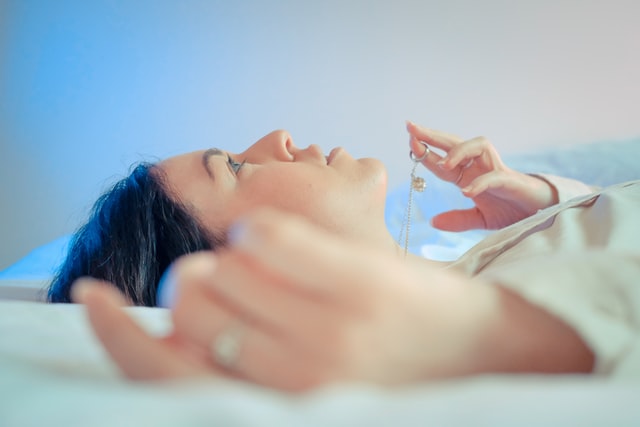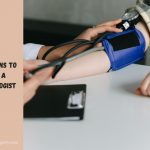
If you experience issues with your sleep it may not occur to you to go to your dentist to seek treatment.
Luckily, since sleep apnea is such a common condition and it is mostly due to issues in the oral cavity, many dentists are specializing in treating it.
The restless nights will be the thing of the past once you find out more about this sleeping disorder and finally decide to seek treatment.
Find out more in the text below.
What is sleep apnea?
Though this disorder is extremely common, not many people know what it actually is. Sleep apnea is defined by a cessation of breathing lasting multiple seconds during sleep.
In less extreme cases it may lead to snoring while others may find it hard to get a full night’s sleep due to not being able to breathe properly.
The airway blockages are caused by weakened muscles at the back of the throat, a tongue that is too big, or even an undersized jaw.
When you’re at the dentist’s office, the dentist may notice your tooth enamel is being worn off which could be the first sign of sleep apnea. Many sufferers grind their teeth in their sleep since they struggle to breathe.
If your significant other notices you’re grinding your teeth in your sleep or excessively snoring you should contact a dentist to start your snoring and sleep apnea treatment.
You can find out more about sleep apnea treatment by following this link – https://scottsdaledentalexcellence.com/services/snoring-and-sleep-apnea-treatment/ .
Types of sleep apnea
Sleep apnea comes in two forms and your dentist can treat only one of them.
OSA or obstructive sleep apnea is the more common type of sleep apnea, and luckily dental specialists are often more than capable of treating it.
As the name suggests, a certain part of your oral cavities, such as your tongue or throat muscles, obstructs the airflow leading to interrupted airflow.
One of the main causes of this type of sleep apnea is obesity since the excess weight at the neck can make the throat tissue cave in.
There’s also central sleep apnea which is unfortunately not something your dentist can help you treat. In this case, there is no obstruction in the airway.
Yet, the brain is unable to deliver the correct signals to the muscles that manage to breathe, resulting in sleep apnea.
This sleep problem may be caused by brain tumors, heart failures, previous strokes, and brain infections. If you believe your sleep apnea is due to brain issues, seek neurological treatment.
Health implications of sleep apnea

Photo Credit: Unsplash
Long-term health problems impacting both physical and emotional well-being are associated with untreated sleep apnea.
High blood pressure is about two times as common in those with sleep apnea than in those without it, according to some studies.
In addition to heart illness, mental problems such as bipolar disorder, depression, and mania are more likely to strike individuals suffering from sleep apnea.
It may surprise you that sleep apnea has also been linked with a higher risk of type two diabetes.
Chronic exhaustion from untreated sleep apnea raises the chance of an accident at work or while driving. These occurrences might have severe, or perhaps fatal, consequences.
CPAP for sleep apnea
CPAP machines, which are often used to treat sleep apnea, are well-known to most people. An oxygen mask and an air generator are the two main parts of a CPAP machine.
Throughout the night, the machine delivers air to your lungs, guaranteeing a steady supply of oxygen.
Because of the difficulty some patients have in relaxing with an oxygen mask on, CPAP devices fix the problem but are very unpleasant to use.
Thankfully, it’s possible to enjoy a good night’s sleep every night with the aid of your dentist, who may recommend an alternative therapy.
Get your dentist’s help now
When it comes to sleep apnea, dentists can be the first ones to notice the symptoms. Since teeth grinding is one of the common symptoms of the disorder, your dentist could notice some decay occurring on your teeth.
Other symptoms such as jaw pain and broken teeth are also something your dentist shouldn’t miss.
Furthermore, if you’re struggling with OSA, you’ll be happy to know that there are much more convenient ways of treating sleep apnea, rather than the loud and uncomfortable CPAP machine.
Oral appliances are the modern way of treating sleep apnea, favored by many sufferers. These appliances are custom-made which ensures ultimate comfort while you’re sleeping.
There are two main types of oral devices: mandibular repositioning and tongue retaining devices.
The former works by pushing your jaw in a more appropriate position, ensuring a constant airflow to your lungs, whereas the latter keeps your tongue in place.
Depending on which part of your mouth causes your OSA, your dentist will decide on a suitable appliance for you.
In conclusion, your dentist is more than capable of assisting you in the treatment of sleep apnea. However, before making a treatment plan with your dentist, be sure to go through all of the diagnostic steps.
About The Author:
Nemanja Marinkov is a health nut and a marketing expert. He is interested in all things related to basketball and also loves marzipan. You can find him on Twitter.

![[Infographic] Exploring Sleep Debt: Strategies for a Restful Night's Sleep Exploring Sleep Debt: Strategies for a Restful Night's Sleep](https://www.safeandhealthylife.com/wp-content/uploads/2024/01/Sleep-Debt-150x150.webp)


